I abhor technology.
There’s this cognitive dissonance, of sorts, that I experience all too frequently. Like, I know the value of iPhones and satellites and Bluetooth-enabled coffeemakers. But my lizard brain also recognizes a lot of needless effort and annoyances and bad politics involved—it would much rather club rats for nourishment and live in a mound of rocks.
It’s a gap made all the more apparent after I recently interviewed Lauren Sarah Hayes, an Arizona-by-way-of-Scotland electronic musician who specializes in improvisational songwriting and who operates at the forefront of the nexus between technology and music. She holds a Masters in Digital Composition and Performance and a Ph.D. in Creative Music Practice from the University of Edinburgh. She also teaches various sound design and music-related courses while completing research at a major Southwestern university. And she’s even helped develop and code various music devices for both educational and performance purposes. In fact, she’d recognized the appeal of music-tech hybrids long before academia. “I learned classical piano,” she said during our call, “but I used to experiment in trying to emulate things I heard on the radio.”
—
Amidst many gems from our conversation, ironically our call file was partially deleted somehow—I guess the feeling is doubly mutual, technology? It’s only now that I’m over the initial sting and embarrassment that I’ve spent ample time pondering why I’m so compelled by Hayes’ music as someone so technology inept (and proud). Her songwriting is the very definition of technology-enabled; she spent several minutes describing how she manipulates her music with a Playstation controller. Her entire career is about how we push creative barriers through technology, and how something primal as singing and making music has evolved within the confines of technology. But there’s something else she said that stood out: “I was super into how the music would make me move,” she said. “I always loved moving a lot when I was in bands, and even jumping into crowds.” Hayes is a chaotic, flawed human, darting through these electronic soundscapes, trying to find some magic amid the beeps and boops of it all. An intriguing dynamic that’s best exemplified by her most recent EP, entitled EMBRACE.
It’s technically four songs, with catchy titles like “Kill The Cop In Your Head.” But it’s really one extended piece that seemingly shapeshifts every other second. There is no overt structure to these songs, and every shift in pitch, mood, or basic genre tag is based on seemingly random factors, some of which may even be out of Hayes’ very control. There’s long, dissonant stretches of noise that may be deeply aggressive or somehow cathartic, likely struggling for some kind of middle ground. All of Hayes’ influence from playing in bands in Scotland—snarling punk, rhythmic dub, Top 40 from her beloved radio “experiments,” etc.—are vying for a spot in the slow unfurling of her musical “visions.”
What we get is Hayes standing amid a sea of pre-recorded sounds and snippets, battling the chaos with her singular weapons (a video game controller and her own wits), trying to find something new in the way things roll out of speakers and land amid the unknowing, unprepared brains of listeners. There’s a kind of romanticism there, both in the music and in talking to her: one woman against the aural odds, achieving success if only in managing to control the maelstrom briefly. It’s unnerving and physically jarring music, no matter its emotional tone, and that’s not going to be appealing to everyone. But you can’t deny that this is still deeply human music.
—
The aim of any song, regardless of the artist or genre, is to reveal some aspect of their innate humanity. A folk song, for instance, pares things down to one person, an acoustic guitar, and a message. A pop song, then, may add in other layers (gimmicks, effects, etc.) for maximum effect, but it’s still the same kind of construct. But Hayes’ music does away with that simplicity or the lusture; it focuses instead on a purer demonstration of humanity. It’s Hayes responding the best she can in that moment, improvising to make something new and engaging amid the same march of sounds and concepts. It’s almost like Sisyphus and his rock was—only you can actually enjoy the accompanying struggle. In that sense, the songs of EMBRACE often feel like a profound snapshot of life, creating some meaning, often the best that we can, from a world that, at best, is indifferent to our whims.
Hayes bravely attempts to find order and value within these efforts, and while they’re not always appealing or even seemingly “complete,” these songs feel like the purest expression of music as expression. They’re coded messages that seep into the brain and demand digestion and understanding. In that sense, Hayes bypasses any of the gimmicks or technology attached to her work, and shows us the power and emotional potential as you watch another person try and connect these ideas and threads in profound ways, completely in real-time. Sometimes you can get a sense of where Hayes is headed, and in those moments you feel in step with another person and aligned with the larger universe. But even when she decides to zig when you would have certainly zagged, it just feels like a great moment of our shared existence. It’s another instance of the universe throwing a curveball and watching what sort of magical weirdness just might take hold.
There’s one other line that survived our interview that seems now essential. In further talking about her favorite kinds of music, Hayes said, “I’ve always been drawn to really visceral music, and so for me that’s a real personal connection.” In essence, Hayes is all about that most existential connection to the music itself: demolishing the barriers of sound and context for an experience that’s both emotional and physical and so much more. As such, there’s a kind of religious joy to Hayes’ songs and EMBRACE specifically—as if you’re looking into the face of some great cosmic entity as it shares universal secrets through electronic gibberish. But, really, it’s one woman from Scotland, trying to get you to see the joy and madness of it all.
Alright, you get a pass this time, technology.
You can listen to Lauren Sarah Hayes’ EMBRACE over on Bandcamp!



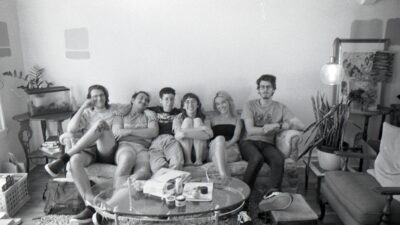
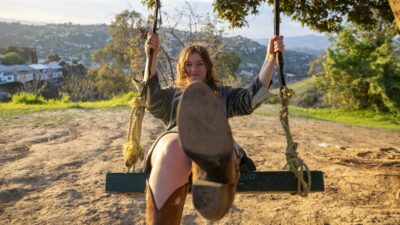

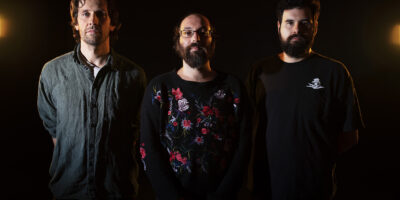




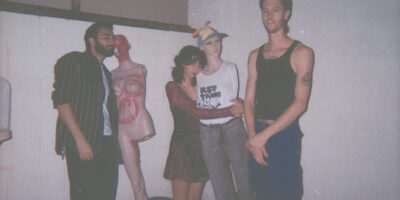



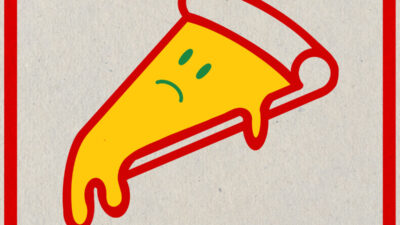
Comments